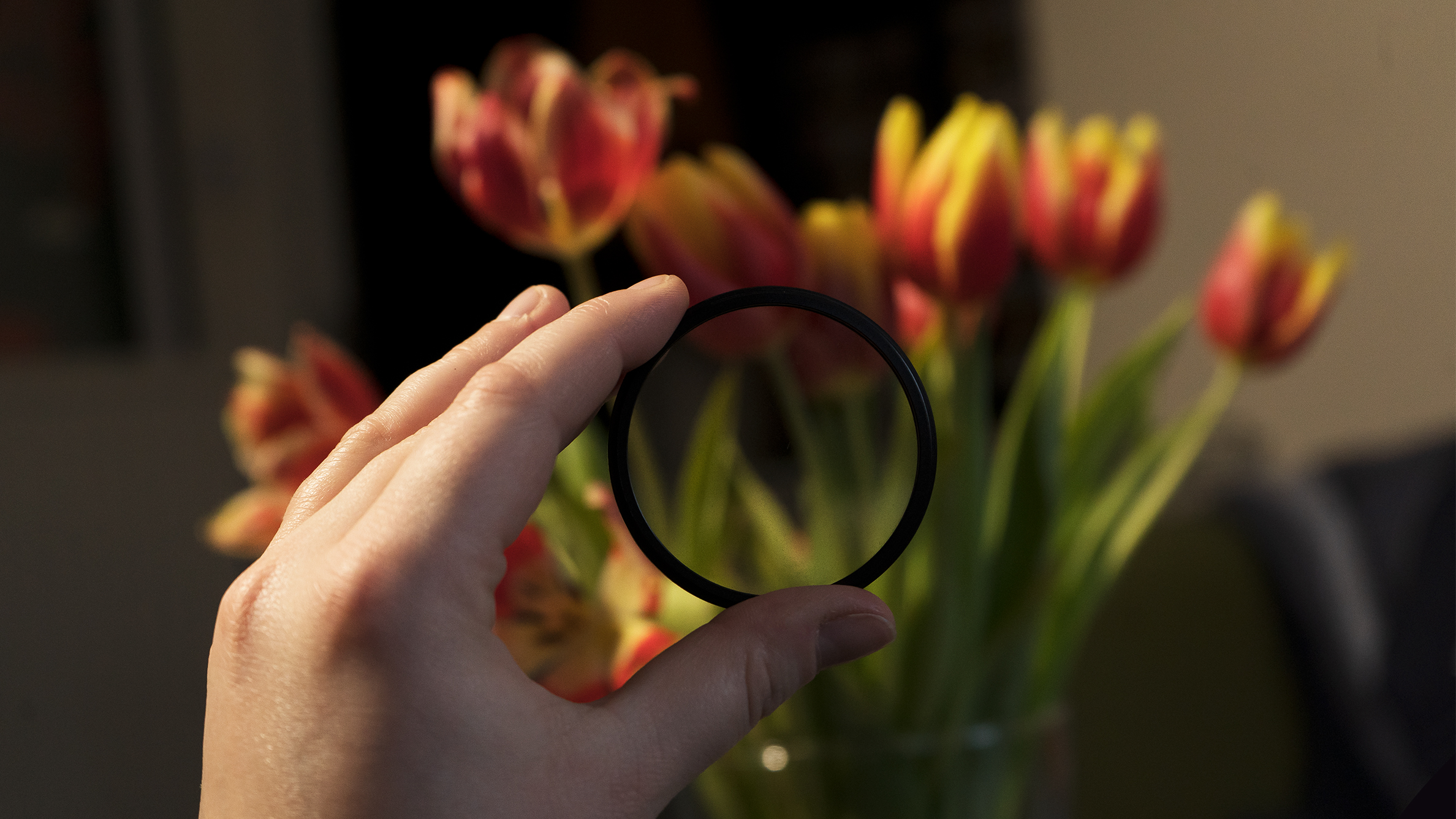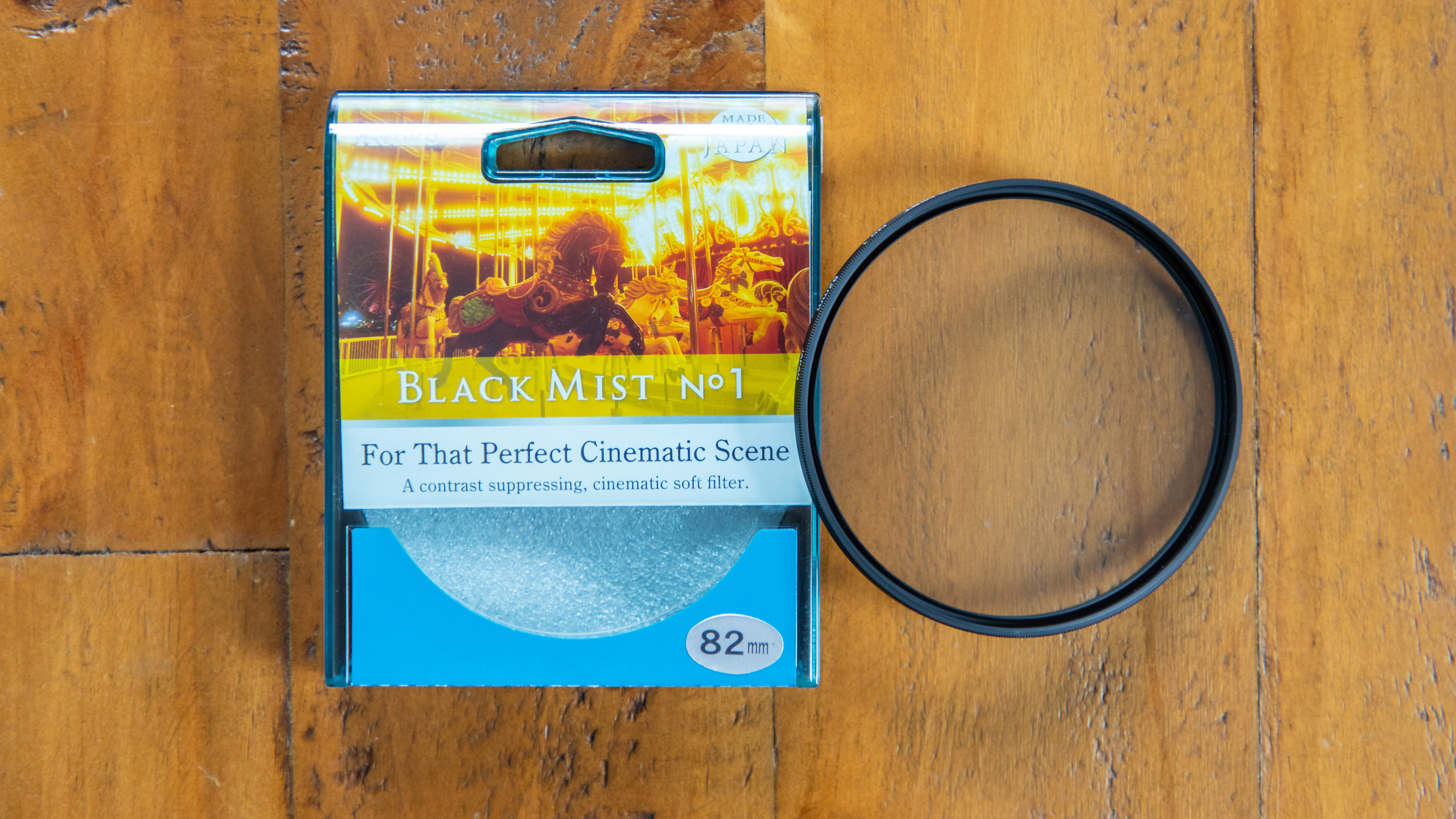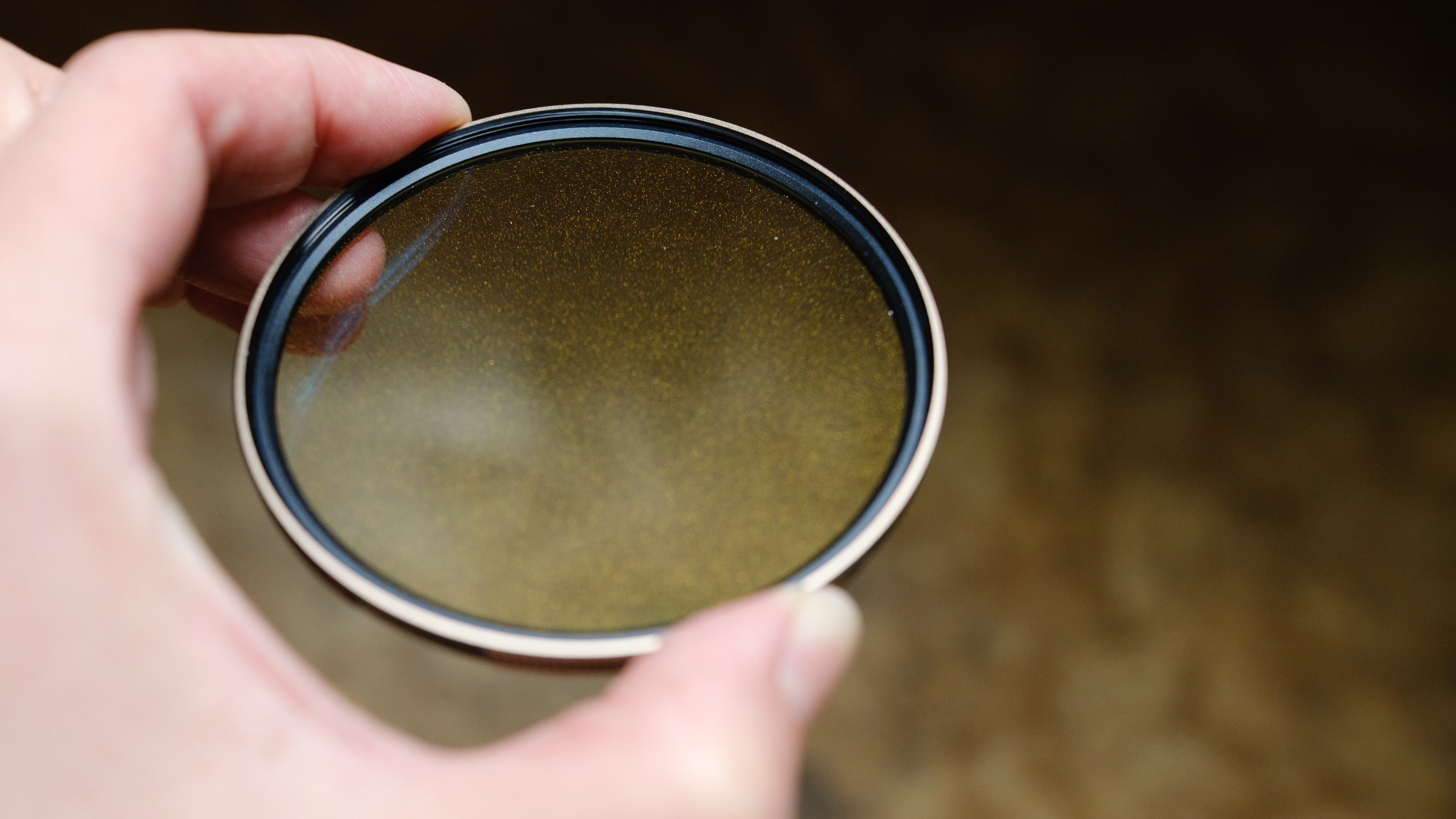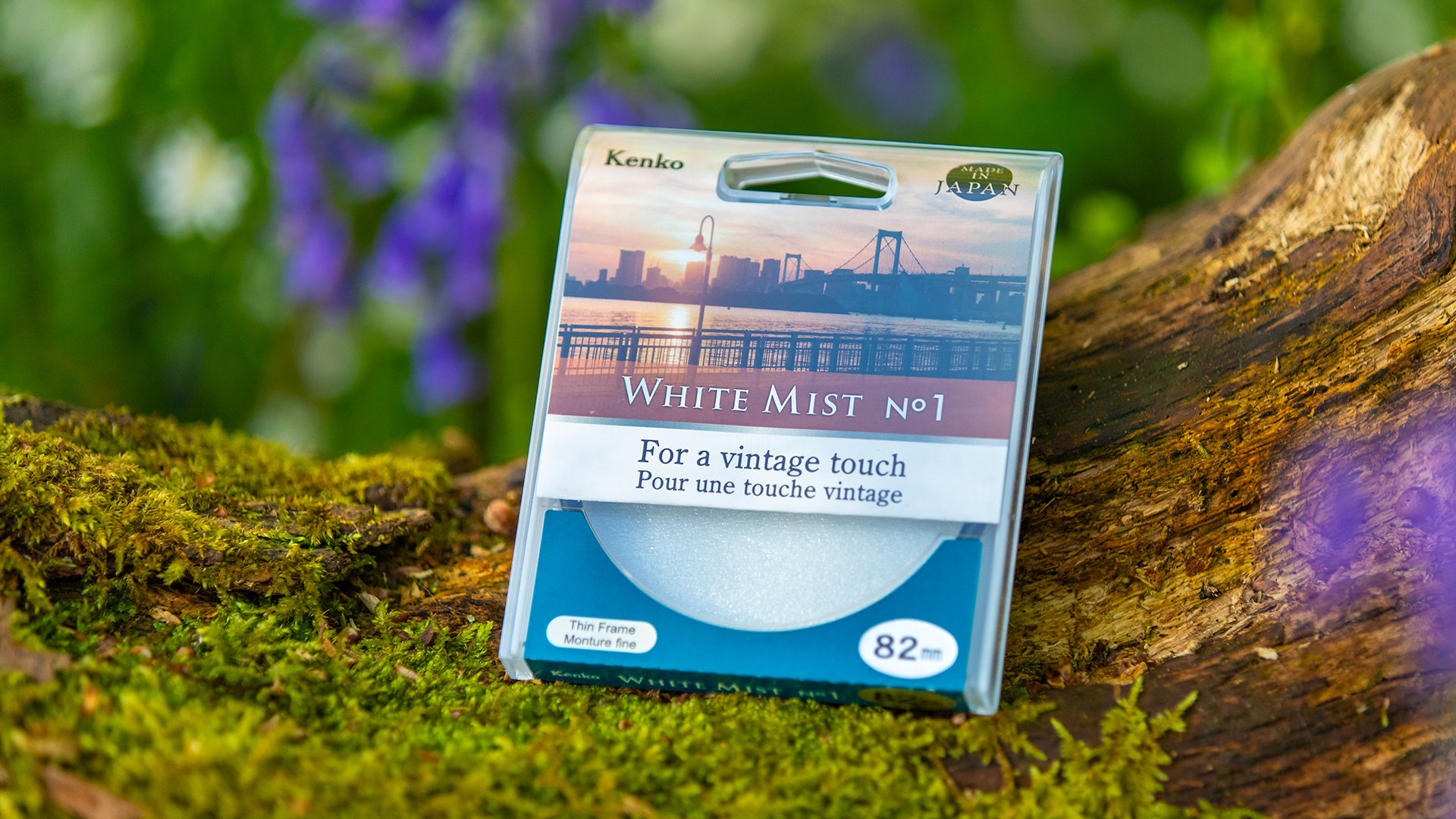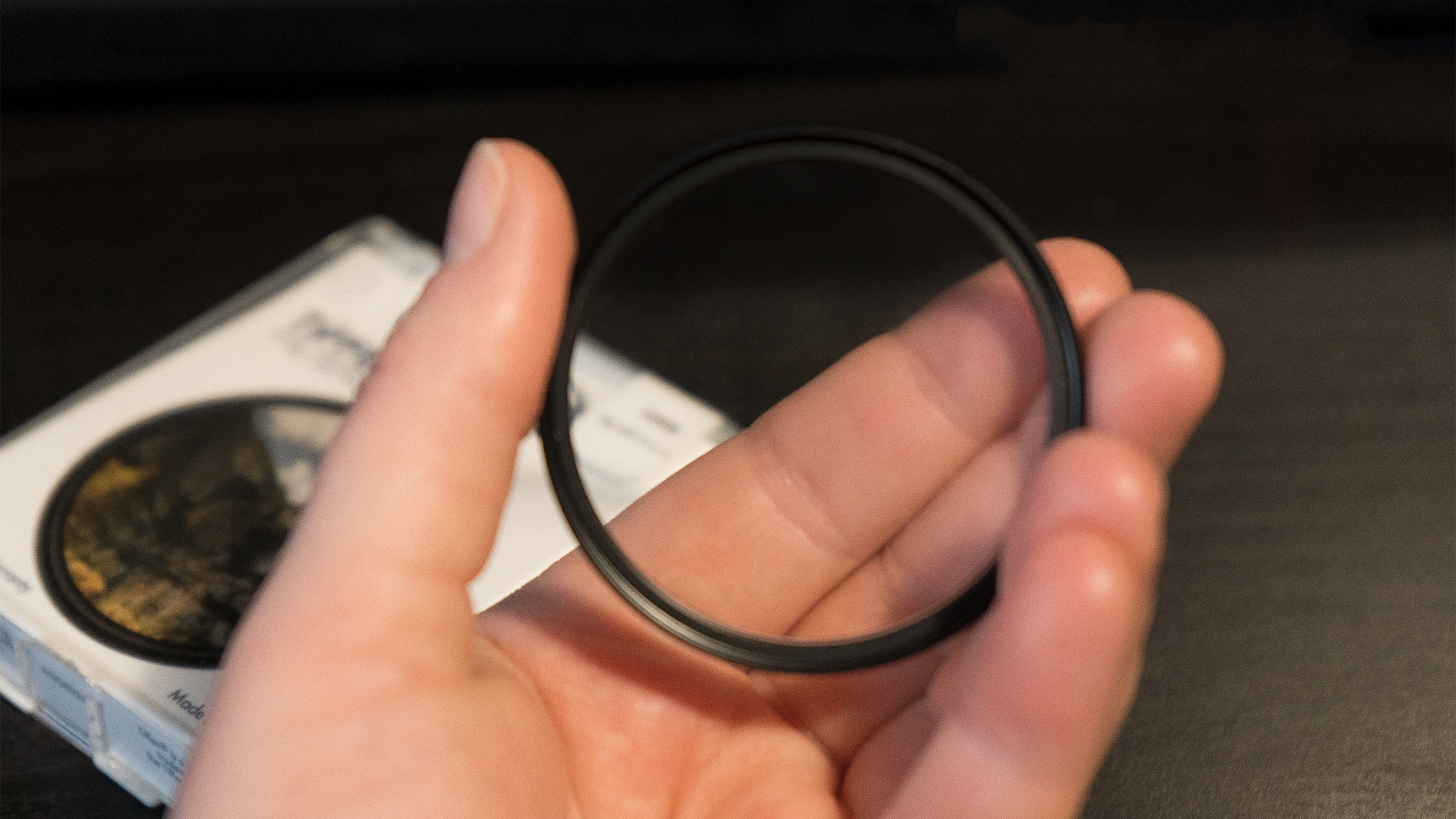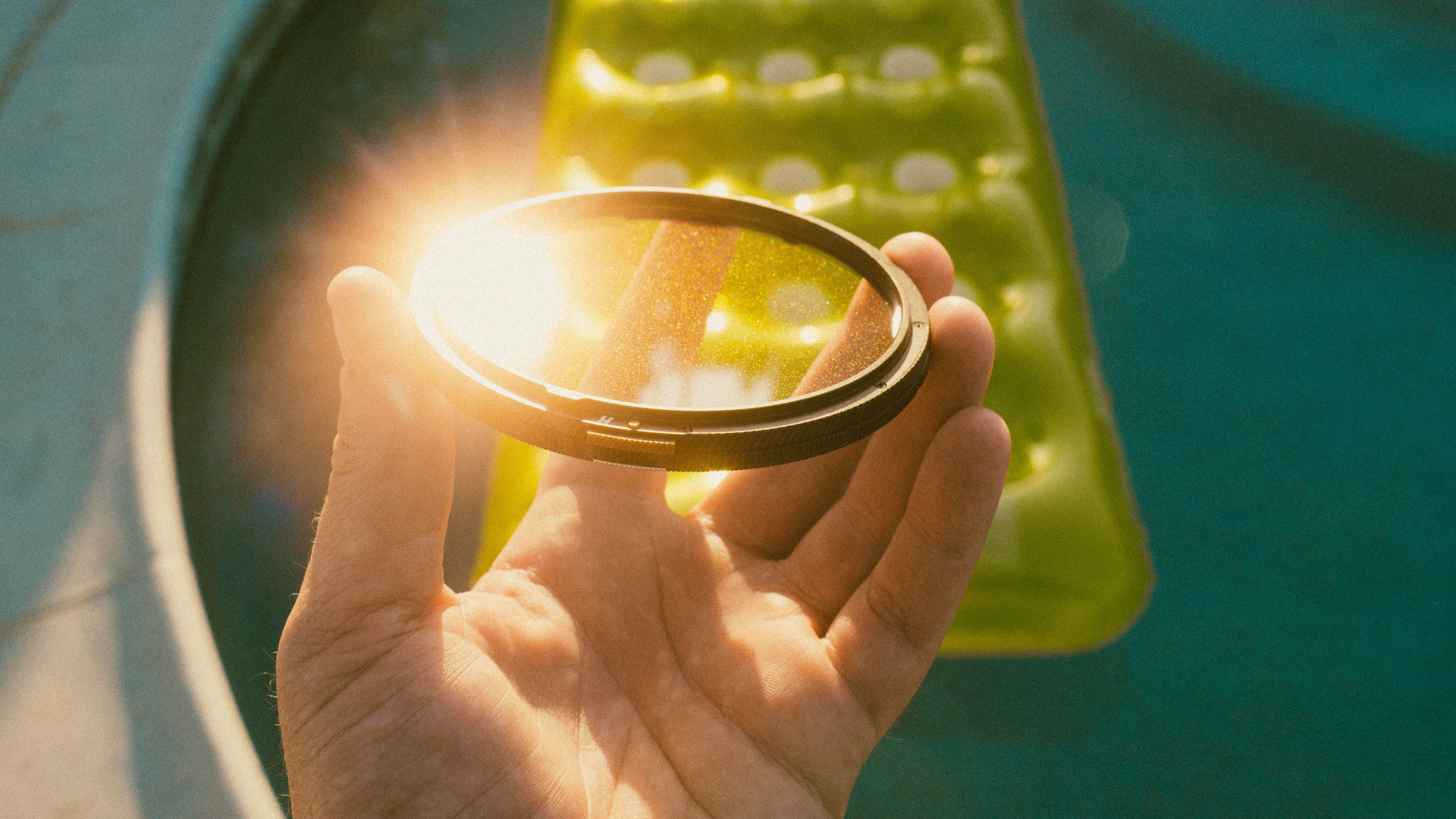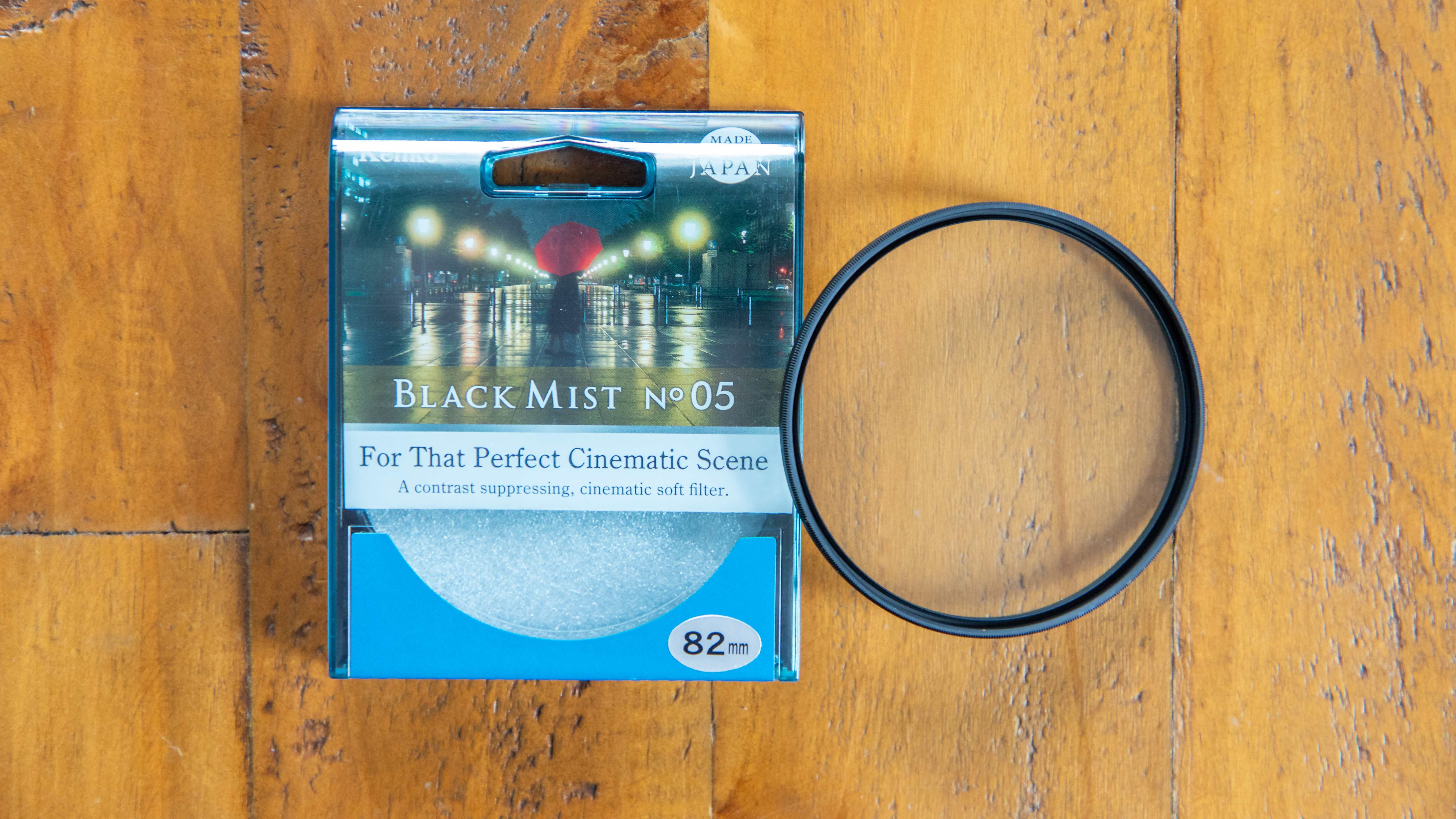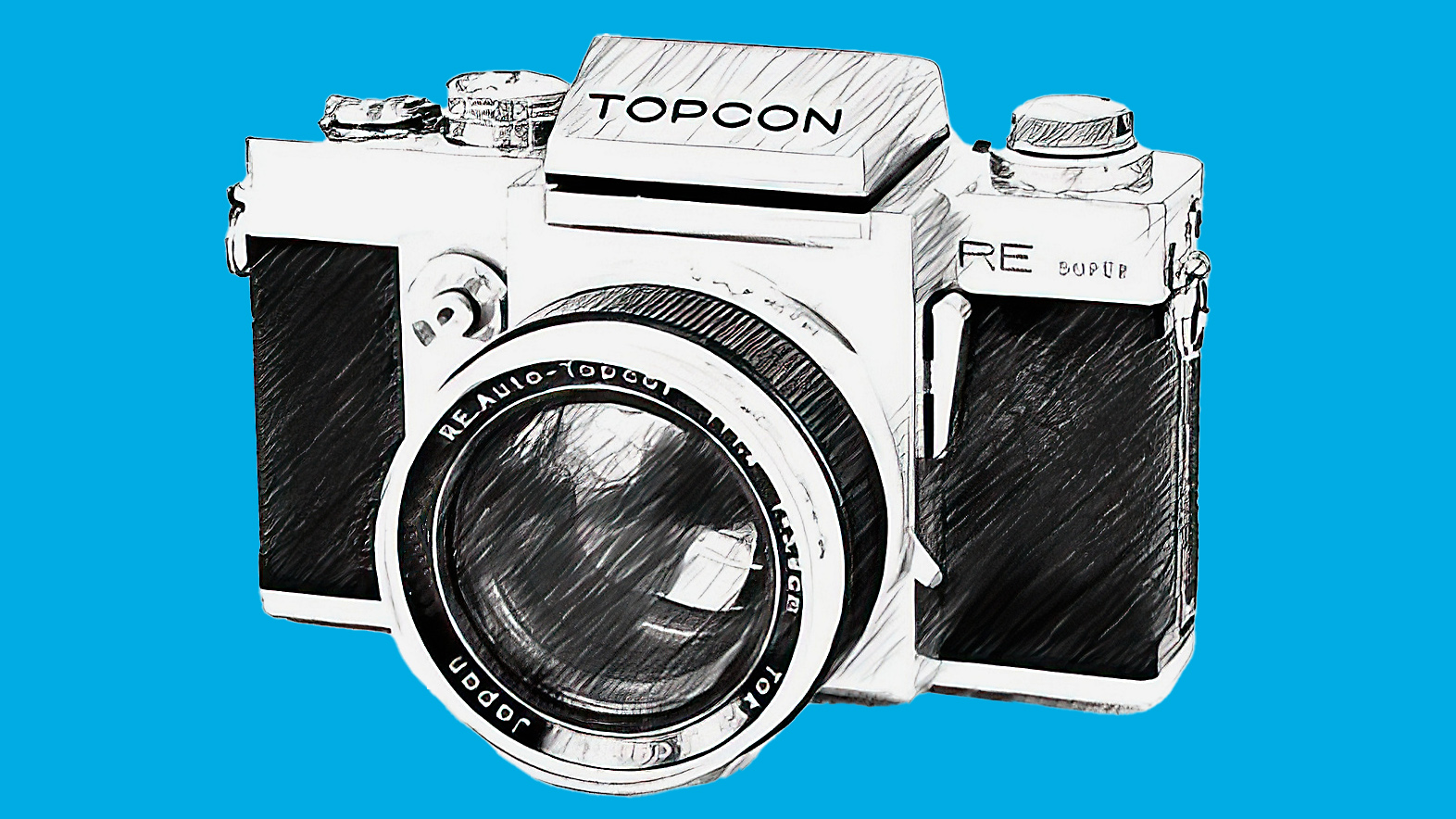The best diffusion filters: soft-focus, low-contrast filters for the cinematic look
The best diffusion filters – or mist filters – flatter skin, raise shadows, and create a classic cinematic style

The best diffusion filters – also known as mist filters – are low-contrast filters that provide a fantastic way to achieve a stylish, cinematic look in-camera for both video and stills. However, they do so much more than that.
Beyond achieving that movie-like look, the best diffusion filters are also flattering to skin, making them ideal complements to modern lenses (which can be so sharp as to be unkind to pore structure). And, as the name suggests, low-contrast filters also raise black levels by diffusing light into the shadow areas, thereby lifting dark areas of your image. This can be just as helpful whether you want to create a more atmospheric shot in a portrait, or you want to shoot a sunset shot where the low sun is rendering everything in shadow as a harsh silhouette.
Still, the most common use for these filters is to capture that dreamy, hazy, "golden-age Hollywood look" with blooming highlights, lifted contrast, and even more charismatic bokeh. So, why would you do this in-camera, as opposed to overlaying an effect or LUT at the editing stage? The main reason is that software-driven enhancements simply can't fully recreate the same effect as these filters, which are etched to defocus illumination and spread it across the image, all while retaining crucial sharpness and contrast.
In this way, filters give otherwise crisp, clinical, modern lenses similar visual characteristics to vintage lenses – and even 35mm film. TV productions like The Crown and Peaky Blinders use diffusion filters for this very reason, to achieve that distinct period look.
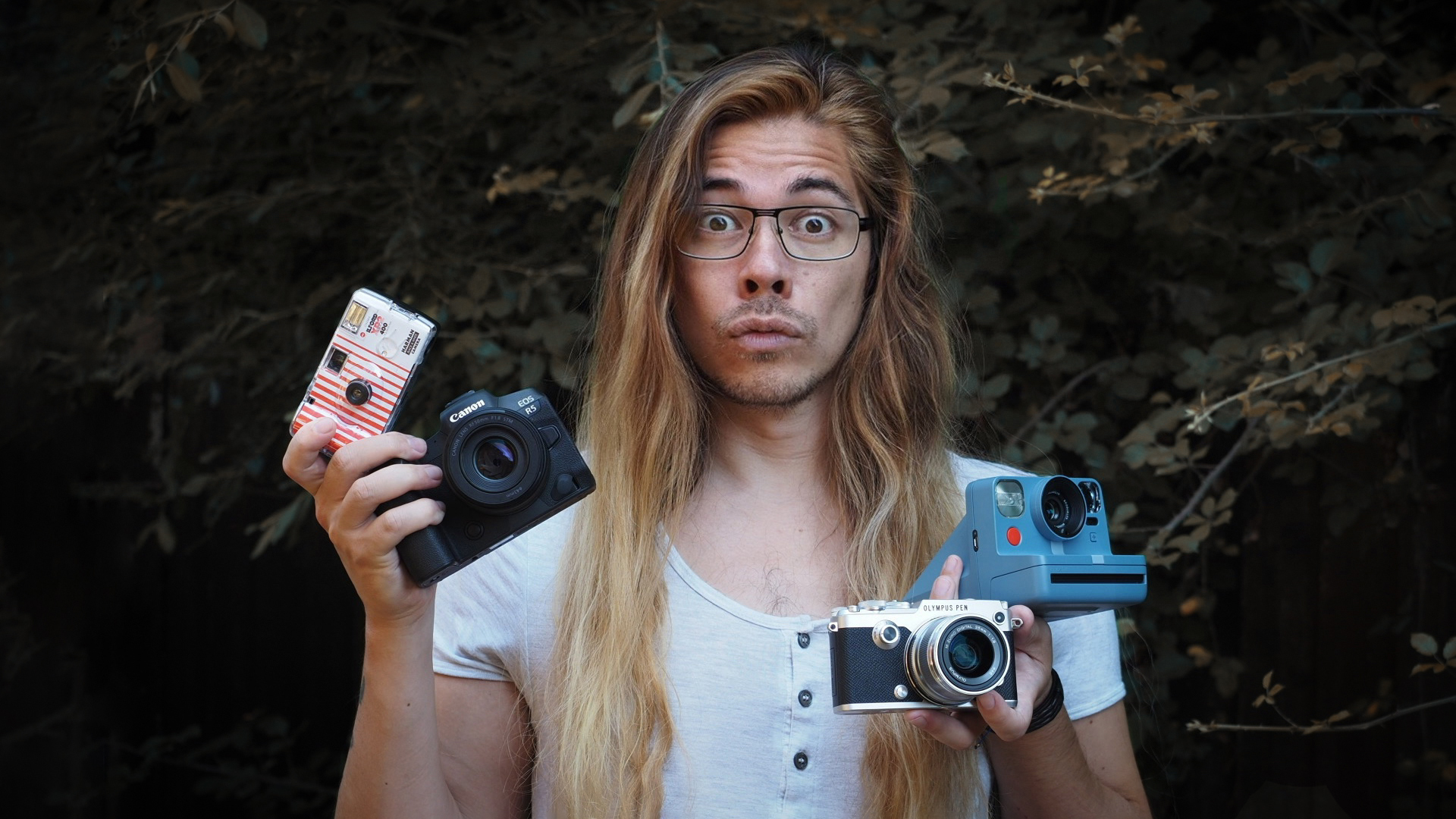
The editor of Digital Camera World, James has over 20 years’ experience as a journalist and started working in the photographic industry in 2014. Always on the hunt for fresh creative takes in his professional and personal shooting, he has built up extensive experience in the practical application of lens filters.
The Quick List
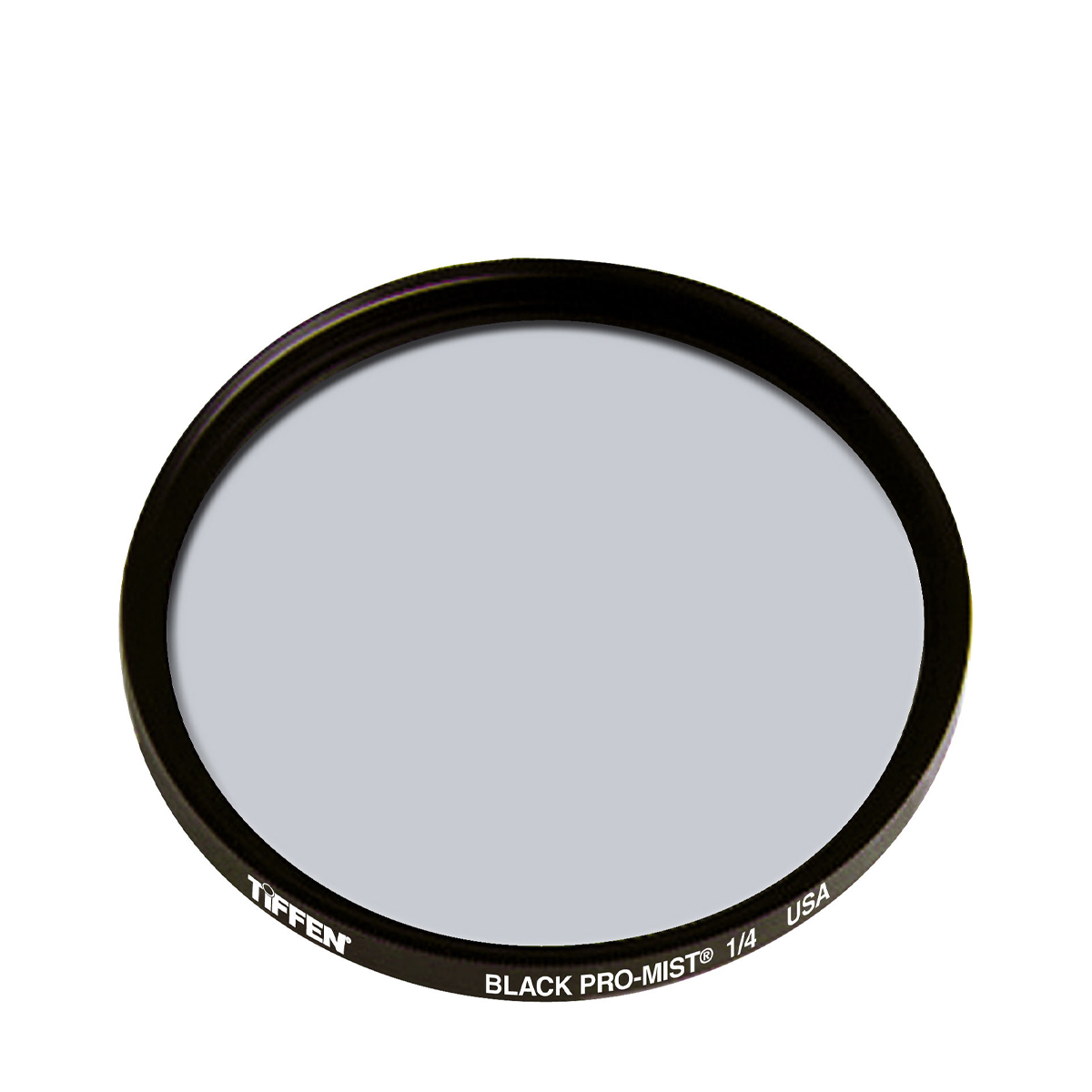
This is the professional’s choice for bringing a soft, natural feel to stills or video without sacrificing the detail of digital photography.
Read more below…
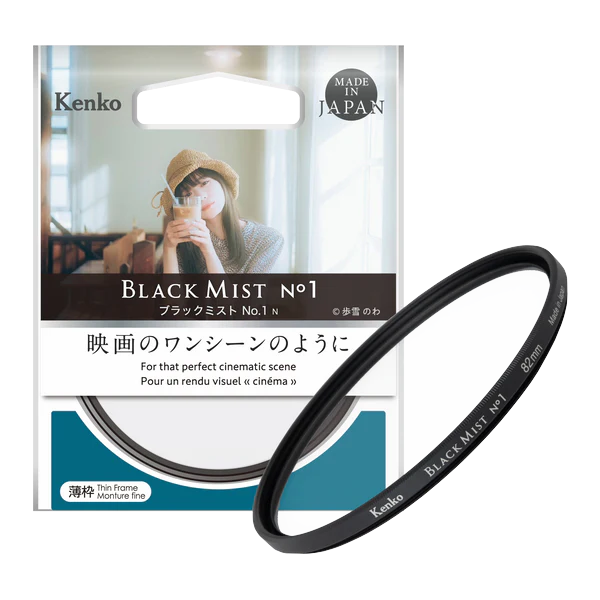
Offering soft-focus hazy shots with a dreamy and atmospheric feel, this well-priced, good-quality filter is less expensive than many of its competitors.
Read more below…
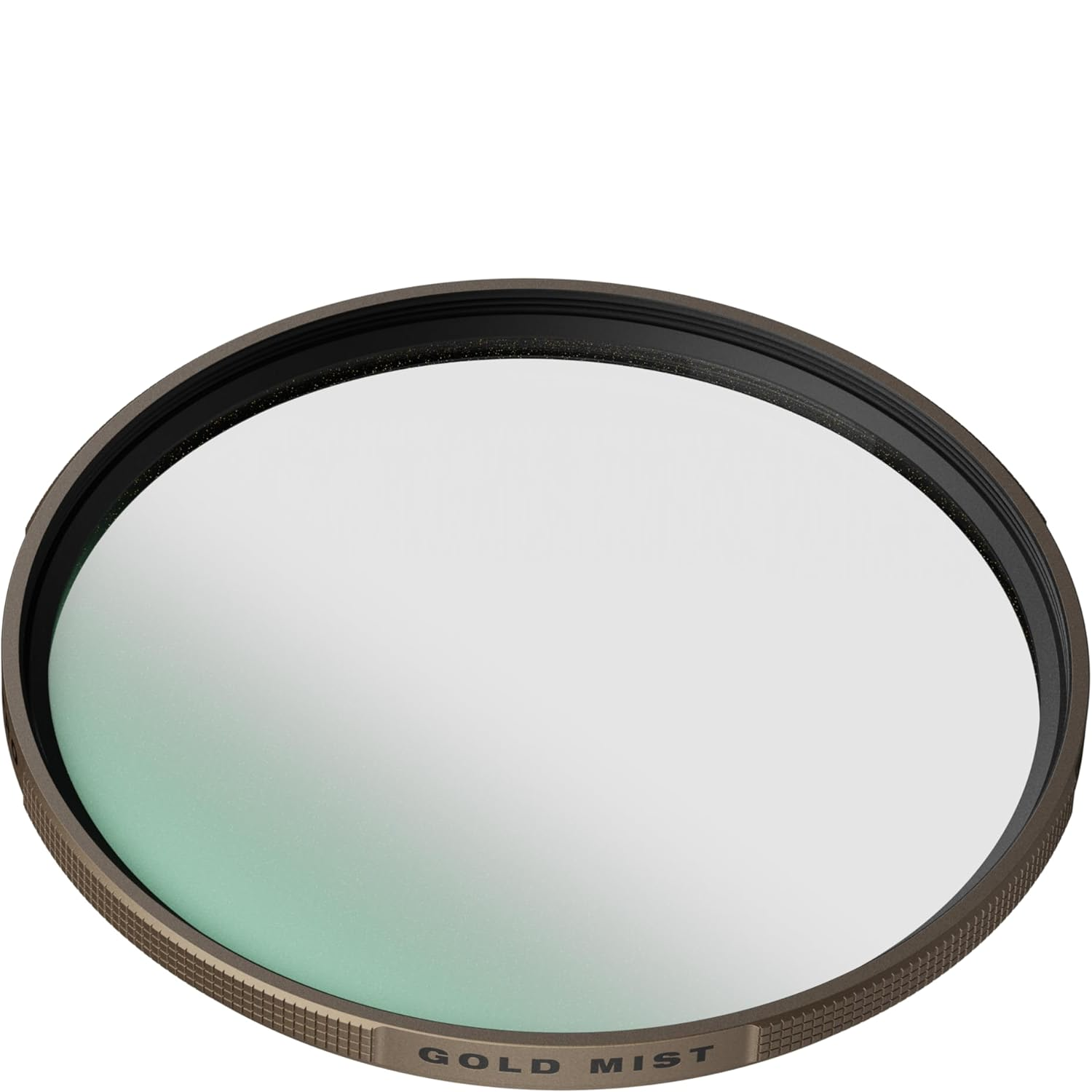
For photographers who love warm tones, a cinematic feel and golden light, this filter creates a golden glow when directed towards any light source.
Read more below…
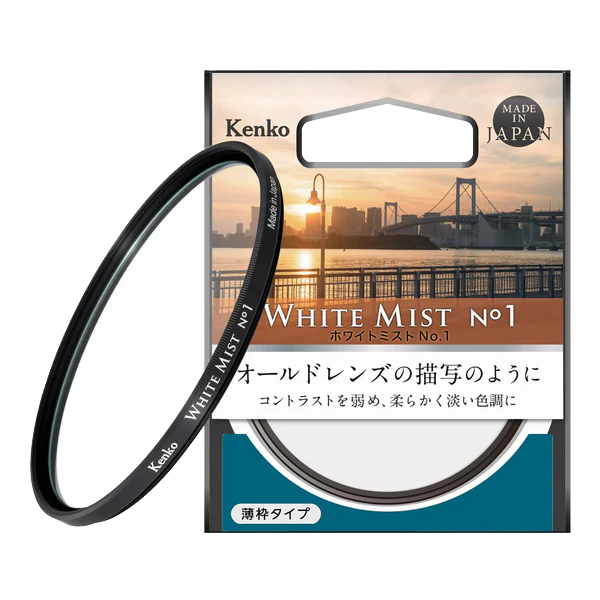
Diffusing powder melted into the glass boosts flare and bolsters the appearance of a white hazy mist, bestowing images with a vintage, retro filmic quality.
Read more below…
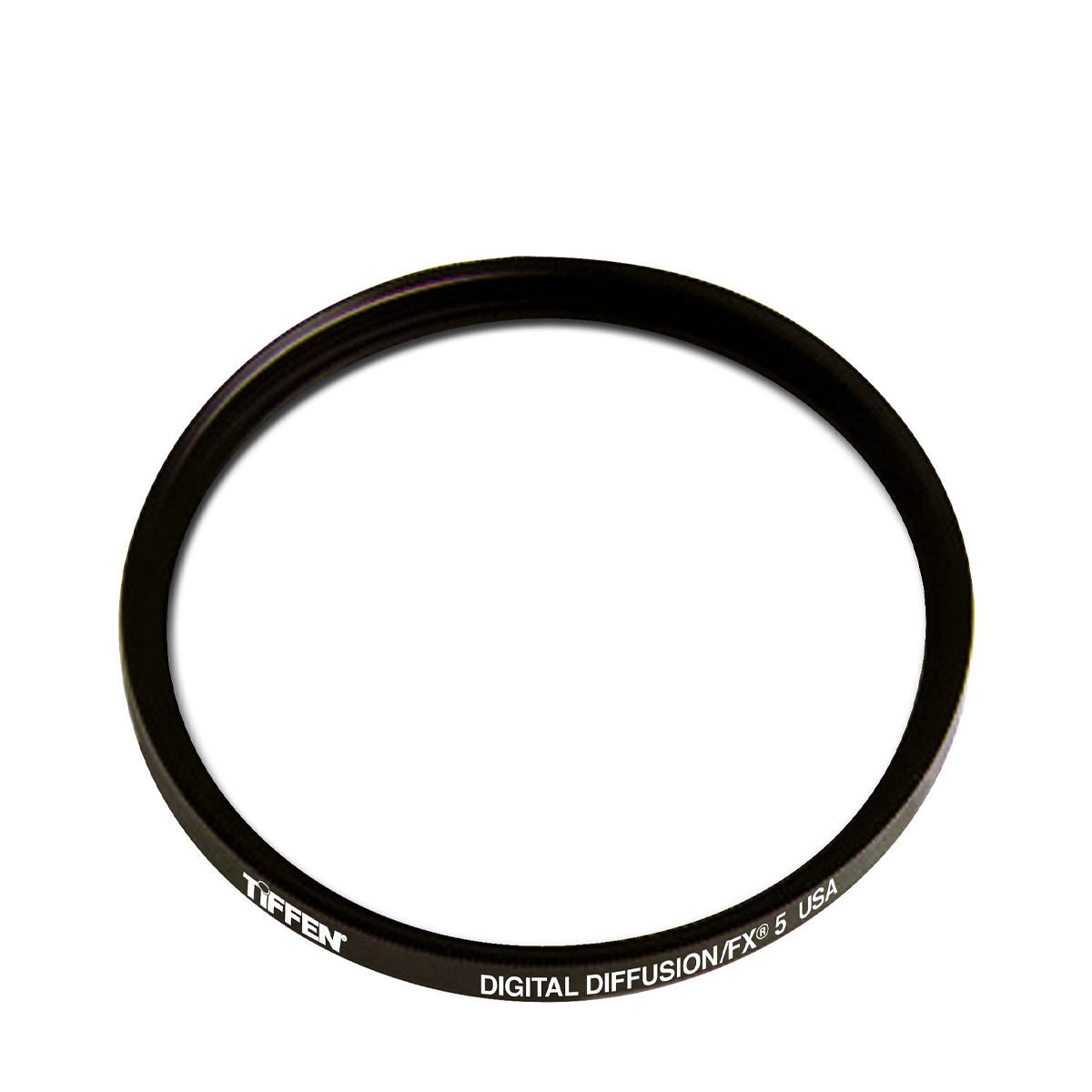
For the most natural result possible, this filter adds softness without affecting contrast or generating flare effects.
Read more below…
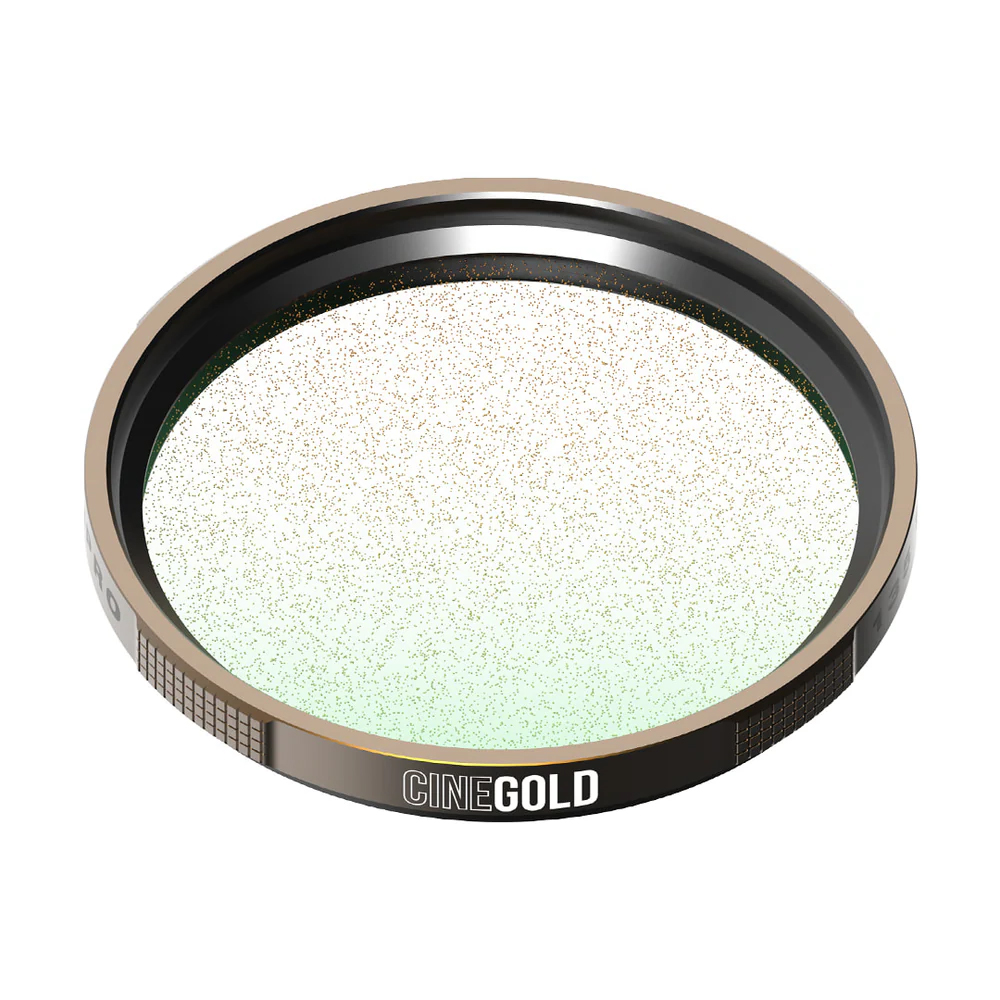
The golden flecks embedded in the glass of this filter perfectly enhance the low sun during golden hour.
Read more below…
Load the next products ↴
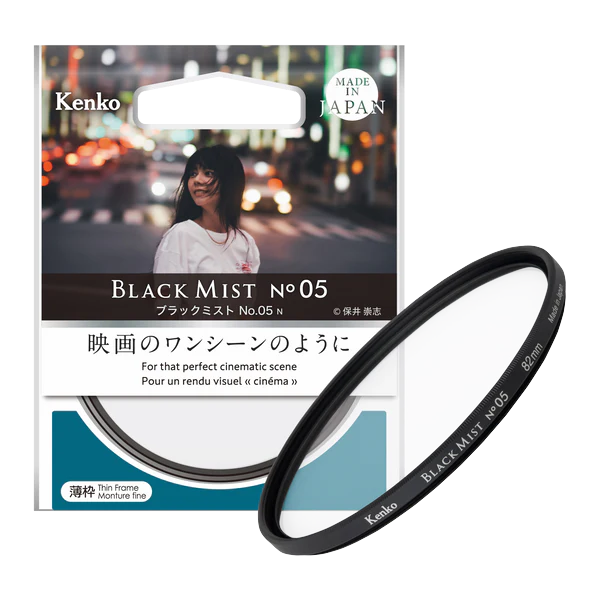
If the diffusion effect of a 'full-strength' No.1 filter is too much for your taste, this No.5 variant offers a toned-down, softer treatment.
Read more below…
Best diffusion and low-contrast filters
Why you can trust Digital Camera World
Best diffusion filter overall
Specifications
Reasons to buy
Reasons to avoid
Tiffen is the leading brand in this field, with a mighty reputation thanks to its popularity with cinematographers as well as portrait photographers. The Pro-Mist line softens the light without sacrificing detail, giving you the benefits of digital photography with an old-school film feel.
The Black Pro-Mist series yields a stronger effect in brighter areas of the frame compared with the standard Pro-Mist series. I tested a Black Pro-Mist with a 1/4 strength, and was really pleased with the pastel-like light it rendered in my shots. The 1/4 filter has a nice balance between making a noticeable change to images and overpowering them, but this is a subjective area, which is why Tiffen offers such an extensive range.
See our full Tiffen Black Pro-Mist review
Best budget diffusion filter
Specifications
Reasons to buy
Reasons to avoid
The Kenko Black Mist No.1 filter is a high-quality optical accessory designed to give your photos and videos a softer, more cinematic appearance. Its primary function is to diffuse light, which softens details and reduces overall contrast, creating a dreamy and atmospheric effect. This is particularly effective in high-contrast lighting situations, such as scenes with direct sunlight or strong backlighting, where the filter can help to create a more pleasing and less harsh image.
Despite the low asking price, its build quality and optical performance are excellent, and it does not introduce any undesirable optical flaws, such as color shifts or vignetting. The Kenko Black Mist No.1 can be used to create a variety of looks, from subtle and ethereal to more dramatic and moody, and is a more affordable option compared to similar products from competing brands like K&F and Tiffen. It's a tempting choice for photographers and videographers looking to experiment with creative in-camera effects on a budget.
See our full Kenko Black Mist No.1 filter review
Best diffusion filter for warmth
Specifications
Reasons to buy
Reasons to avoid
The PolarPro McKinnon 135 Gold Mist filter is a unique lens filter designed to infuse images with a warm, golden glow and enhance overall color rendition. This effect is achieved through the use of tiny, gold-colored particles embedded within the filter's glass. These particles interact with light sources, creating a soft, blooming effect with a distinct golden hue. The result is a more analog-inspired, cinematic feel to the images, characterized by warmer tones and a subtle, dreamlike quality.
The filter is particularly effective in scenes with distinct light sources, where the golden blooms become more prominent. It's an excellent choice for photographers who favor warm, atmospheric imagery and want to add a touch of "magic pixie dust" to their work. The build quality very good indeed, featuring a robust construction with metal caps for protection, and the filter is available in a variety of thread sizes to accommodate different lenses.
While the effect can be partially replicated in post-processing, the in-camera result from the PolarPro McKinnon 135 Gold Mist filter offers a unique and organic quality that is difficult to reproduce digitally. It's a creative accessory that encourages photographers to experiment with light and color, and it is highly recommended for those who appreciate a warm, cinematic aesthetic in their photography.
See our full PolarPro McKinnon 135 Gold Mist filter review
Best vintage effect diffusion filter
Specifications
Reasons to buy
Reasons to avoid
The Kenko White Mist No.1 filter is a specialized photographic tool designed to impart a distinct vintage aesthetic to your images. Manufactured in Japan to the same high standards as Kenko's popular Black Mist series, this filter is crafted from high-quality optical glass with anti-reflective and water-repellent coatings. It comes with a durable, clear UV-cut hard case for protection, ensuring its longevity.
The primary function of the White Mist No.1 is to reduce contrast and enhance lens flare, resulting in a hazy, washed-out look that is particularly effective in backlit situations. This creates a nostalgic, vintage feel, making tones appear paler and more subdued. The filter's build quality is top notch, producing these effects without introducing any unwanted vignetting or chromatic aberration, preserving the overall integrity of the image.
While the Kenko White Mist No.1 excels at creating its specific vintage look, it is a more niche product compared to its Black Mist counterpart. While the White Mist filter provides a unique in-camera effect, the more versatile Black Mist No.1 filter can be used to create a wider range of looks. However, for those who specifically desire the authentic, in-camera vintage aesthetic that the White Mist No.1 provides, it remains an excellent choice.
See our full Kenko White Mist No.1 filter review
Best diffusion filter for smoothness
Specifications
Reasons to buy
The Tiffen Digital Diffusion FX 1/4 filter is a specialized tool for photographers aiming to create more natural and flattering images, particularly in portraiture. This filter is designed to combat the overly sharp, "digital" look that modern, high-resolution lenses can produce. By subtly softening fine details, it helps to minimize the appearance of skin imperfections such as wrinkles and blemishes without sacrificing overall image sharpness.
Crafted from high-quality Water White optical glass, the Tiffen Digital Diffusion FX 1/4 filter ensures exceptional clarity and color fidelity, so it won't introduce any unwanted color cast to your images. Unlike some diffusion filters that can create a hazy or dreamy effect, this filter provides a more controlled and subtle diffusion. It gently reduces contrast and softens skin textures while avoiding the creation of a noticeable halo effect around light sources. This makes it an ideal choice for photographers who want to achieve a more pleasing and organic look in-camera, reducing the need for extensive retouching in post-production.
The filter is built to last, comes with a protective plastic case, and is backed by a 10-year warranty, reflecting Tiffen's commitment to quality. For photographers who want to enhance their portraits with a gentle, flattering softness while maintaining a high degree of image quality, the Tiffen Digital Diffusion FX 1/4 filter is an excellent and reliable option.
See our full Tiffen Digital Diffusion FX review
Best for golden hour
Specifications
Reasons to buy
Reasons to avoid
The PolarPro CineGold is a warm diffusion lens filter engineered to emulate the low-contrast, soft aesthetic of vintage film, and I found it particularly reminiscent of Kodak Portra 400. It achieves this retro look through gold-colored flecks embedded in German-sourced Chroma glass, which work to spread light and introduce a warm, golden cast.
Rated as a 1/2 gold mist diffusion filter with 90% transmission, its effect is most striking when a light source – like the sun during golden hour or streetlights – is present in the frame. The filter enhances warmth and creates a soft, cinematic light bloom, enhancing the 'golden hour' look. When light sources are excluded, the filter still offers subtle benefits, including a gentle softening that flatters skin tones by reducing the visibility of pores while maintaining the sharpness of the eyes.
The filter is well-built with an aluminum frame and is protected by coatings to prevent reflections and smudges. It even comes with four free .cube editing presets (LUTs) to complement the filter's color profile. It is ideal for those who favor a pronounced, warm, low-contrast, and retro style, and, to my mind, offers a more dramatic effect than PolarPro’s more subtle Gold Mist filters.
See our full PolarPro CineGold review
Best low-contrast filter
Specifications
Reasons to buy
Reasons to avoid
The Kenko Black Mist No.5 filter is a high-quality, soft-effect filter designed for both photographers and videographers. It is a more subtle version of the Kenko Black Mist No.1, providing half the intensity of the "mist" effect. The filter excels in high-contrast situations, such as rainy cityscapes at night, where it adds a pleasing, hazy glow to light sources. This effect can lend a cinematic and atmospheric quality to both still images and video footage.
The filter's construction is of a premium quality, and it is available in a range of standard screw-in filter thread sizes. Beyond its use in atmospheric scenes, the Kenko Black Mist No.5 is also effective for softening skin tones in portrait photography and for taming harsh contrast in backlit scenarios. One of the key advantages of this filter is that it does not introduce any noticeable vignetting or chromatic aberration to the image. While the subtle effect of the filter can be mimicked to some extent using post-production software, the in-camera result provides a convenient and high-quality alternative.
See our full Kenko Black Mist No.5 filter review
How to choose the best diffusion filter
What does a diffusion filter do?
It's very difficult to visualize what diffusion filters do. At their lowest strength, they can add subtle softness to textures, cause highlights to halo or gently raise shadows. At their strongest, they can radically reduce resolution, create brilliant bloom or lift contrast so much that shots resemble ungraded log-like footage.
How we test filters
When we test filters, we look at both optical performance and general build quality – how robust the filter feels, how easy it is to use and how securely it attaches to the lens. We use a combination of real-world and lens testing to inform our comments in reviews and buying guides. For filters, we test light transmission levels, color neutrality (i.e. if the filter introduces a cool or warm cast) and the impact a filter has on image quality.
Find out more about how we test and review on Digital Camera World
The best camera deals, reviews, product advice, and unmissable photography news, direct to your inbox!

James has 25 years experience as a journalist, serving as the head of Digital Camera World for 7 of them. He started working in the photography industry in 2014, product testing and shooting ad campaigns for Olympus, as well as clients like Aston Martin Racing, Elinchrom and L'Oréal. An Olympus / OM System, Canon and Hasselblad shooter, he has a wealth of knowledge on cameras of all makes – and he loves instant cameras, too.
- Adam WaringGuides Editor
